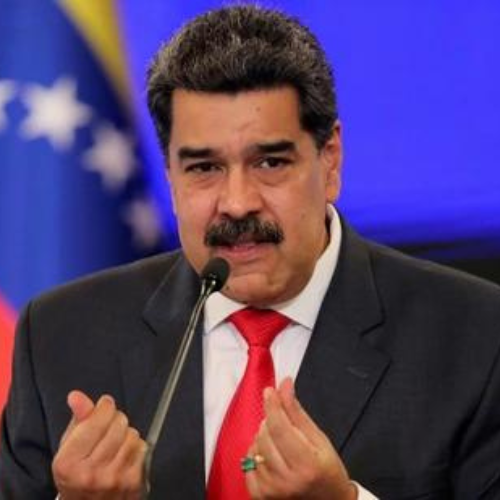In a significant geopolitical development, the United States has cast serious doubts on the credibility of the recent presidential election in Venezuela, where President Nicolas Maduro was declared the winner for a third term. The U.S., along with several other governments, has raised concerns about alleged electoral manipulation, with senior U.S. officials indicating that Washington might reassess its sanctions policy toward the OPEC nation.
Election Controversy
The Venezuelan electoral authority’s announcement that Nicolas Maduro had won the election has been met with widespread skepticism. Independent exit polls suggested a landslide victory for Maduro’s main opponent, Edmundo Gonzalez, who asserted that he was the true winner. The discrepancy between official results and independent assessments has led to a call for transparency from the international community.
U.S. Response and Demands
The Biden administration emphasized that the perceived electoral manipulation had undermined Nicolas Maduro’s claim to a legitimate victory. U.S. officials, speaking anonymously, demanded that Maduro’s administration publish a detailed vote count to restore credibility to the electoral process. Failure to do so, they warned, would likely lead to further international rejection of the announced results.
A senior U.S. official highlighted the administration’s readiness to reassess sanctions based on Nicolas Maduro’s response to these demands. “We are faced with potentially a new scenario,” the official stated, highlighting the need to consider future actions regarding sanctions on Venezuela.
Historical Context and Sanctions
This is not the first time the U.S. has questioned Nicolas Maduro’s electoral victories. Washington dismissed his 2018 reelection as a sham and imposed heavy sanctions on Venezuela’s oil industry. Although these sanctions were eased last October following a deal between Maduro and opposition parties, they were reimposed in April due to allegations that Maduro reneged on his electoral commitments.
International Concerns and Coordination
U.S. Secretary of State Antony Blinken, speaking from Tokyo, expressed serious concerns that the election results did not reflect the will of the Venezuelan people. White House spokesperson John Kirby echoed these sentiments, stating that the U.S. would withhold final judgment until further information is obtained.
The Biden administration is also coordinating with regional allies to formulate a collective response. Senior U.S. officials are in contact with Latin American governments, including Brazil, which have expressed concern about the political turmoil in Venezuela. President Joe Biden is scheduled to discuss the issue with Brazilian President Luiz Inácio Lula da Silva, reflecting the broader international effort to address the situation.
Political Implications and Criticism
The disputed election has significant political ramifications both within Venezuela and internationally. For Nicolas Maduro, the lack of credible validation of his victory could undermine his authority and spur further domestic unrest. For the U.S., the issue has become a point of contention in domestic politics. Republican Senator Marco Rubio criticized the Biden administration’s approach, accusing it of being repeatedly deceived by Maduro.
Moreover, the potential for increased Venezuelan migration as a result of political instability poses a challenge for the U.S., particularly at the U.S.-Mexico border. With immigration being a contentious issue in the U.S. presidential campaign, this development could have significant implications for Vice President Kamala Harris, who is seen as a potential Democratic nominee following Biden’s decision not to seek reelection.
Nicolas Maduro’s Defense and Future Prospects
Despite the allegations, President Nicolas Maduro has maintained that Venezuela’s electoral system is transparent and that his victory is legitimate. In his statement, he reiterated the integrity of the electoral process and dismissed the accusations of manipulation.
However, the U.S. officials’ assertion that the electoral commission’s results “do not track with data” from various sources casts a shadow over Nicolas Maduro’s claims. The international community’s response, including potential sanctions and diplomatic pressure, will likely play a crucial role in shaping the future political landscape of Venezuela.
The disputed presidential election in Venezuela has brought to the forefront issues of electoral integrity and international relations. The U.S.’s call for transparency and its threat of reassessing sanctions underline the high stakes involved. As the situation unfolds, the actions of Nicolas Maduro’s government and the international community’s response will be critical in determining the path forward for Venezuela.


